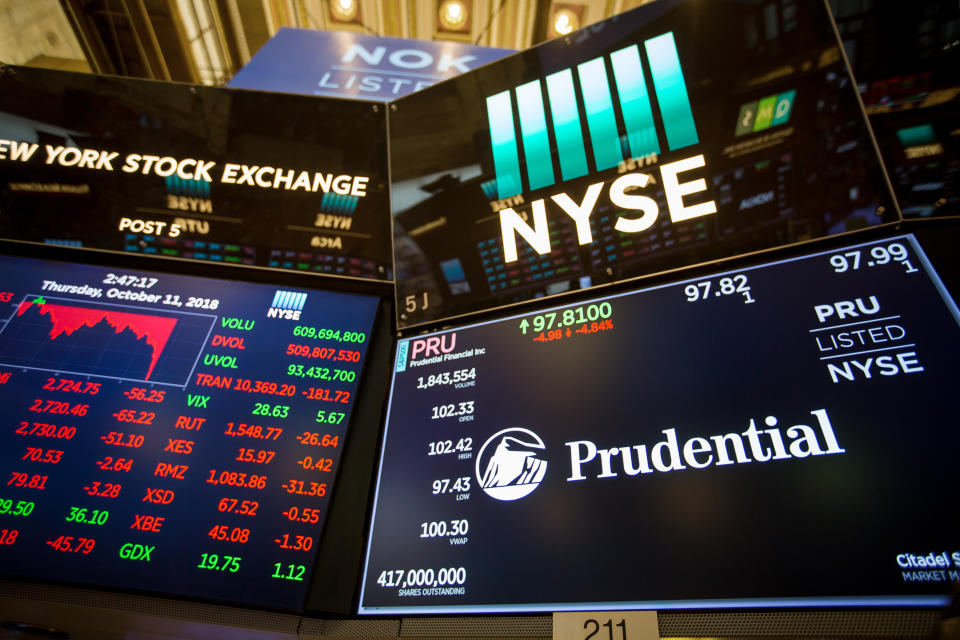Prudential Financial to shed its post-crisis 'too big to fail' label

Prudential Financial (PRU) will no longer face extra regulatory scrutiny now that the U.S. government has relieved the company of its “too big to fail” label applied after the financial crisis. As the last non-bank company to be relieved of the title, the Prudential announcement marks the end of the post-crisis effort to have the Federal Reserve regulate institutions that exist outside of the banking system.
Regulators said Wednesday the largest life insurer in the U.S. is no longer of systemic risk to the U.S. economy because it has more liquidity than it used to, adding that Prudential’s products lack the exposure risk to be of concern for financial stability.
“The council’s decision today follows extensive engagement with the company and a detailed analysis showing that there is not a significant risk that the company could pose a threat to financial stability,” Treasury Secretary Steven Mnuchin said.
Prudential said it is “pleased with this decision, which affirms our longstanding belief that Prudential never met the standard for designation.” The company will continue to be regulated by the New Jersey Department of Banking and Insurance.
The last ‘systemically important financial institution’
Prudential was the last remaining non-bank company to be considered a “systemically important financial institution,” a designation determined by a 10-member panel of regulators known as the Financial Stability Oversight Council. The FSOC is headed by the Treasury secretary.
Under the post-crisis Dodd-Frank legislation passed by Congress in 2010, FSOC is allowed to give any company a “systemically important” label if it is deemed to pose a threat to U.S. financial stability.
If too systemic, FSOC levies the designation on the company and requires the Fed to supervise the institution.
Four companies were given the label between 2013 and 2014: Prudential, MetLife (MET), American International Group (AIG) and the financing subsidiary of General Electric (GE).
For a few years, the Fed developed regulations that subjected the companies to stress tests and other compliance requirements — not unlike those faced by banks.
In 2016, the FSOC scrapped GE’s designation because it had divested enough of its financial assets to no longer be “a threat to U.S. financial stability,” but the other three companies continued to be regulated. Although MetLife won a lower court ruling to shed its “systemically important” label, the Obama administration appealed.
But when the Trump administration took office, the influx of new regulators sought to scrap the designations. While proponents of the designation argue that the Fed needs to supervise risk outside of the banking system, opponents maintain that it is unfair for a bank regulator to supervise — and impose compliance costs — on a company that does not have a bank-like balance sheet.
Many of Trump’s appointees to the banking agencies and other bureaus appeared sympathetic to freeing the companies of the SIFI designation. With FSOC now mostly comprised of Trump-appointed regulators, the committee — led by Mnuchin — removed AIG’s designation and then withdrew its lawsuit against MetLife. Obama-appointee Janet Yellen voted in favor of removing AIG’s designation, but Obama’s regulators at the Consumer Financial Protection Bureau, the Federal Deposit Insurance Corp., and the Federal Housing Finance Agency voted against the motion.
The vote to de-designate Prudential was unanimous.
Brian Cheung is a reporter at Yahoo Finance.
Read more:
Big banks reveal challenges in consumer credit, mortgages

 Yahoo Finance
Yahoo Finance 
